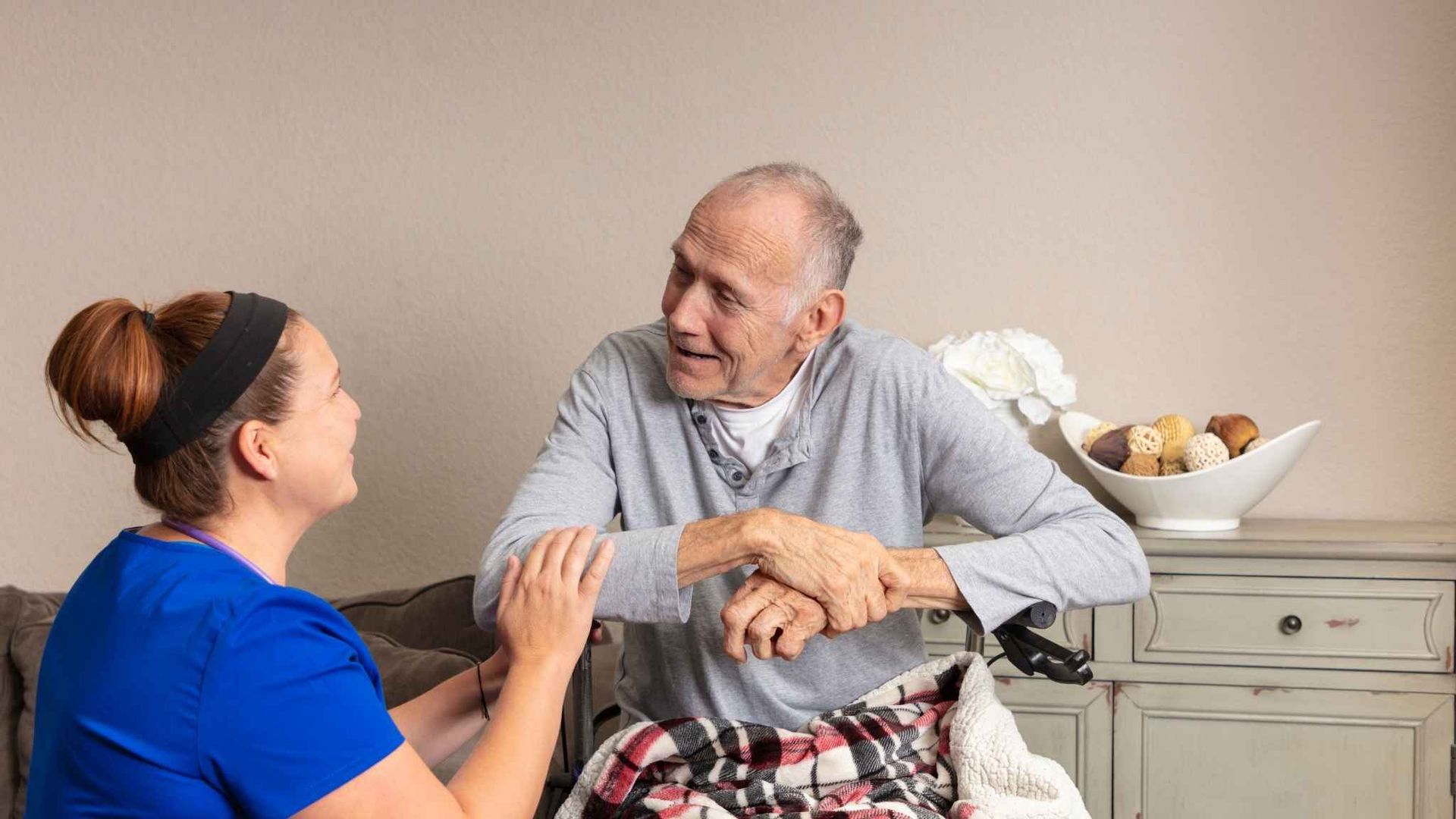How Long is Hospice Care and What Does It Offer?
Hospice care is compassionate end-to-life care provided to terminally ill patients to improve their comfort and quality of life during their final journey. Unlike curative treatments, however, hospice care primarily aims to help alleviate pain, manage symptoms, and offer emotional and spiritual support to patients and their families who are going through this difficult time.
But how long is hospice care?
The
National Hospice and Palliative Care Organization reports that over half of hospice patients receive care for 30 days or less. However, patients with a terminal illness and their loved ones can receive care and support for six months or even longer, depending on how the illness progresses.
How Do I Know When It's Time For Hospice?
The decision to enter hospice care is often a difficult one, but it's important to remember that it's not a sign of giving up—it's essentially just a way to make sure that a person's final days are spent as comfortably and as fulfilling as possible. Some telltale signs that it may be time for a hospice include a significant decline in overall health, increased pain or discomfort that is already difficult to manage, and the inability to perform daily activities independently. This will also be supported by a prognosis ranging a certain number of months instead of years—typically within just six months or so.
Do have open and honest conversations with healthcare providers to determine if hospice is the right choice and when the appropriate time to initiate it may be.
What Is The First Stage Of Hospice?
Hospice care is typically divided into three stages: evaluation, comfort care, and end-of-life care. The first stage, evaluation, is when the doctor will assess the patient's condition and determine if they are eligible for hospice services.
Once it's cleared that they are fit to enter a hospice, the patient will be assigned an interdisciplinary team that includes a physician, nurse, social worker, and a chaplain. The team will then discuss the medical condition, symptoms, and goals with the patient or the family to ensure that the individual gets the best care they need and deserve.
What Happens When Someone Enters Hospice?
When a patient enters hospice care, they experience a shift in focus from curative treatments to comfort-oriented care. Here's what patients and their families can typically expect:
- Initial assessment: A hospice team will evaluate the patient's condition, needs, and preferences.
- Personalized care plan: The team develops a tailored plan to manage symptoms and improve quality of life.
- Pain management: Hospice staff work to ensure the patient is as comfortable as possible, often using medications to control pain and other symptoms.
- Emotional support: Patients and families receive counseling and support to help cope with emotional and spiritual concerns.
- Home care setup: If the patient is at home, necessary medical equipment and supplies are provided.
- Regular visits: Nurses and other team members make scheduled visits to monitor the patient's condition and provide care.
- 24/7 support: Hospice care typically offers round-the-clock availability for emergencies or questions.
- Family education: Caregivers are taught how to care for the patient and what to expect as the illness progresses.
- Respite care: Short-term inpatient care may be provided to give family caregivers a break.
- Bereavement support: Hospice continues to offer support to the family even after the patient's passing.
The hospice team will work closely with the patient and their family to manage symptoms, provide emotional and spiritual support, and coordinate any necessary medical equipment or services. This may include pain management, wound care, and assistance with daily activities such as bathing and dressing.
How Long Can Someone Stay In A Hospice?
Hospice care has no set length of time, as it is customized to fit the individual's needs and condition.
Typically, patients can receive hospice care for as long as their life expectancy is six months or less, as determined by their healthcare provider. However, some patients may remain in hospice care for longer if their condition stabilizes or improves.
What Happens If You Live Longer Than 6 Months On Hospice?
If a hospice patient lives longer than the initial six-month prognosis, they can continue to receive hospice care as long as their healthcare provider determines they still have a life expectancy of six months or less. The hospice team will regularly reassess the patient's condition and make any necessary adjustments to the care plan.
In some cases, a patient's condition may improve to the point where they are no longer eligible for hospice care. If this happens, the patient can be discharged from hospice and may resume curative treatments if appropriate. However, if the patient's condition later deteriorates, they can be readmitted to hospice care.
Does Hospice Provide Food?
Yes, hospice care typically includes the provision of food and nutrition services. The hospice team will work closely with the patient and their family to ensure that the patient's dietary needs are met, whether that involves providing meals, assisting with feeding, or coordinating with a dietitian.
This may include modifying the patient's diet to accommodate any dietary restrictions or preferences, as well as providing nutritional supplements if necessary.
However, there may be times when food and fluid intake is stopped. Hospice care will always provide patients with what they need, but when some patients come to a point where they can't accommodate food in their system anymore because of the slowed digestive process, the team may decide to stop feeding them.
Can Hospice Nurses Tell When Death is Near?
Hospice nurses are highly trained in recognizing the signs and symptoms that indicate a patient is nearing the end of life. Through their extensive experience and expertise, they can often provide a fairly accurate assessment of when a patient's death is imminent based on factors such as changes in breathing patterns, skin color, and level of consciousness.
However, the timing of death can be unpredictable, and hospice nurses will continue to monitor the patient closely and provide support to the family during this sensitive time.
Conclusion
When thinking about how long hospice care lasts, it's important to know that the duration can vary widely based on your loved one's condition, preferences, and how their illness progresses. Hospice care is all about providing compassionate end-of-life support, focusing on comfort and quality of life rather than trying to cure the illness. Typically, hospice care is for those with a prognosis of six months or less, but it can be extended if the patient's condition stabilizes or improves.
If you're considering hospice care for a loved one, don't hesitate to reach out to us at Valley Oaks Hospice. We're here to answer your questions and support your family during this challenging time.












